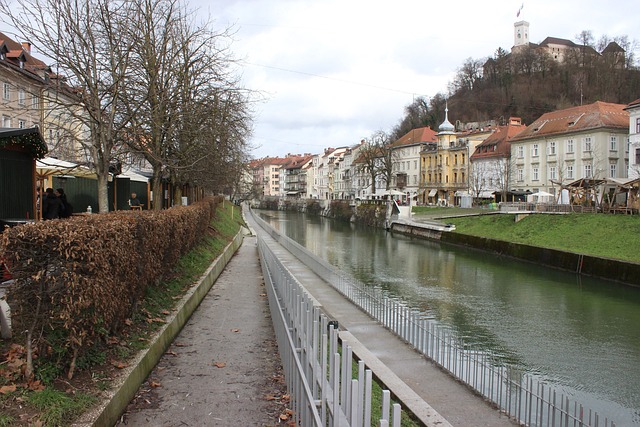Karachi's robust water supply infrastructure, characterized by pipelines, treatment plants, and storage facilities, ensures a consistent flow of clean water from diverse sources like rivers and aquifers, meeting stringent quality standards. This supports the city's growth, as seen in reliable water access in areas like Tariq Road, a bustling hub connecting industrial, commercial, and residential zones. However, rapid urbanization poses challenges including equitable access, shortages, and water quality issues. Innovative solutions like smart technologies, advanced filtration, desalinated water, and rainwater harvesting systems are transforming Karachi's infrastructure, addressing immediate concerns while contributing to a sustainable and resilient water management strategy for the future.
In the heart of Karachi, water supply is a critical infrastructure that shapes the city’s vibrancy. This article delves into the intricate network that sustains this essential service, focusing on Tariq Road as a key distribution point. We explore the current landscape, understanding how Karachi’s water supply system operates and faces challenges like aging pipes and fluctuating demand. By examining innovations and sustainable solutions, we aim to shed light on how the city can meet its future water needs, ensuring a robust and resilient supply for all residents of this bustling metropolis.
- Understanding Water Supply Infrastructure in Karachi
- Tariq Road: Location and Its Relevance to Water Distribution
- Challenges and Innovations in Water Delivery Systems
- Exploring Sustainable Solutions for Future Water Needs
Understanding Water Supply Infrastructure in Karachi

Karachi, as Pakistan’s economic powerhouse, boasts a complex water supply infrastructure designed to meet the demands of its bustling metropolis. The city’s water network is a intricate system involving vast pipelines, treatment plants, and storage facilities, all working in harmony to ensure a steady flow of clean water to homes, businesses, and industries. This robust infrastructure is essential for the city’s growth and development, especially considering Karachi’s rapid population expansion and increasing industrial activity.
The water supply in Karachi originates from various sources, including surface water from nearby rivers and groundwater drawn from aquifers. These resources are treated at advanced purification plants to meet stringent quality standards before distribution across the city. The Tariq Road area, known for its vibrant commercial hubs, benefits from this well-developed infrastructure, ensuring residents and businesses have access to a reliable and safe water supply crucial for their daily needs and economic operations.
Tariq Road: Location and Its Relevance to Water Distribution

Tariq Road is a significant thoroughfare in Karachi, Pakistan, known for its bustling commercial and residential areas. Its strategic location makes it a key node in the city’s infrastructure, particularly when considering water distribution networks. The road runs through diverse neighborhoods, connecting major industrial hubs, commercial centers, and residential colonies, thus posing unique challenges and opportunities for efficient water supply management.
In Karachi, where water scarcity and distribution issues are not uncommon, Tariq Road serves as a vital link in ensuring equitable access to this essential resource. Understanding the complex interplay between urban development, demographics, and water infrastructure is crucial for implementing sustainable solutions. Therefore, focusing on enhancing water supply along this route can significantly impact the lives of the diverse communities it caters to.
Challenges and Innovations in Water Delivery Systems

The water supply system in Karachi, particularly near Tariq Road, faces several challenges due to rapid urbanization and growing demand. One of the primary issues is ensuring equitable access to clean water for all residents. The existing infrastructure often struggles to keep up with population growth, leading to periodic water shortages and unreliable delivery. Additionally, maintaining the quality of water becomes a daunting task as contaminants and pollution pose significant risks to public health.
However, innovations in water delivery systems offer promising solutions. Smart technologies are being integrated to monitor and optimize water distribution networks, ensuring efficient use and minimizing wastage. Karachi has witnessed the adoption of advanced filtration and purification techniques, enhancing water treatment processes. Furthermore, the city’s infrastructure is evolving with the introduction of new sources like desalinated water and rainwater harvesting systems, diversifying the water supply chain. These innovations not only address immediate challenges but also contribute to a more sustainable and resilient water management strategy for Karachi’s future.
Exploring Sustainable Solutions for Future Water Needs

In the face of growing water scarcity in Karachi, exploring sustainable solutions is more crucial than ever for meeting future needs. The city’s rapid urbanization and increasing population put immense pressure on existing water resources, highlighting the need for innovative strategies to ensure a resilient water supply. Implementing green infrastructure, such as rainwater harvesting systems and efficient irrigation techniques, can significantly reduce the strain on traditional water sources.
By integrating these sustainable practices, Karachi can move towards a more self-sufficient water management system. Additionally, investing in desalination technologies offers another promising avenue, especially considering the city’s proximity to coastal areas. Balancing these approaches with conservation efforts and community education will be essential to ensure long-term viability and address the evolving water challenges of this vibrant metropolis.
Karachi’s water supply system, particularly near Tariq Road, faces challenges like aging infrastructure and growing demand. However, by leveraging innovations in distribution networks and exploring sustainable solutions such as water recycling and efficient storage, the city can ensure a resilient water supply for its burgeoning population. Understanding and building upon the existing infrastructure, as highlighted in this article, is crucial to meeting future water needs in Karachi.
